Action
Harubee – Young Faces, Old Voices

 Mohamed Shafraz Hafiz for Maldives Promotion House – A group of young men flood the stage and take their positions. There are around twenty of them. A majority of them carry with them traditional Dhivehi goatskin drums. A flourish, a sharp tap, and a song is breathed into life. It’s sleepy at first but gains momentum like a rolling boulder. The song grows louder, faster, and the crowd sways because they can’t help it.
Mohamed Shafraz Hafiz for Maldives Promotion House – A group of young men flood the stage and take their positions. There are around twenty of them. A majority of them carry with them traditional Dhivehi goatskin drums. A flourish, a sharp tap, and a song is breathed into life. It’s sleepy at first but gains momentum like a rolling boulder. The song grows louder, faster, and the crowd sways because they can’t help it.
The beat works itself into their blood. Old voices on young faces sing the bodu beru songs and by the time the crescendo arrives, frenzy inducing, the crowd is ensnared completely. A few of them leap into the space in front of the stage to express their exultation through dance. By the time their hearts slow down it’s time for the next song. This is a typical night for Harubee, Maldives’s premier bodu beru band.
Bodu beru, literally meaning “big drum”, is one of the oldest surviving aspects of Dhivehi culture. It is a form of song based on a beat hammered out on a goatskin drum of traditional design. The tempo almost invariably starts slow and builds up into a crescendo, which is sustained for a while before reaching an abrupt end.
Though they’ve earned the right to it, Harubee shuns their status as a super-band, instead choosing to celebrate their roots and the fans that make them who they are. This warmth translates into the performance as well as the energy that comes from their passion.
Not a single member of Harubee performs full-time. They all work full-time elsewhere and come together as a band only for the passion of bodu beru. Harubee’s philosophy is that performing full-time will make the music feel like a job.
Shihan (Puchu), one of the four main members of Harubee alongside Mamdhooh (Manday), Naushad (Naube), and Shamhan (Joray), explains that the four of them first came together as a band at the end of the 90’s quite circumstantially, when one of them beat a dabiya (a tin pitcher), and the others joined in with song. They soon found themselves performing free at parties purely for the love of bodu beru.
 The group officially came to be known as Harubee for their performance at the 2006 Dubai Shopping Festival. Since then, Harubee has gone onto perform at tourism expos, various major events at resorts, and have appeared on National Geographic Channel and the BBC in addition to performing alongside major local artists at live events. Harubee’s first mainstream success came when they won the MNBC Bodu Beru Challenge 2010. Since then Harubee has been performing without respite. This is no small accomplishment, considering that all members work full time, and the line up always depends on who can get time off work for a performance.
The group officially came to be known as Harubee for their performance at the 2006 Dubai Shopping Festival. Since then, Harubee has gone onto perform at tourism expos, various major events at resorts, and have appeared on National Geographic Channel and the BBC in addition to performing alongside major local artists at live events. Harubee’s first mainstream success came when they won the MNBC Bodu Beru Challenge 2010. Since then Harubee has been performing without respite. This is no small accomplishment, considering that all members work full time, and the line up always depends on who can get time off work for a performance.
Harubee cannot be talked about without mentioning the cultural relevance of the group. The art of bodu beru is one of the most representative facets of Dhivehi culture. Many of the songs circulating around the bodu beru scene are so old that their origins are lost entirely. Harubee represents a revitalising, and more importantly, a rebranding of everything bodu beru stands for. As a bodu beru group of young people who charge their performances with a new energy that somehow falls runs parallel to the timelessness of the tradition, Harubee brings a progressiveness to the art that has not only been absent but hadn’t even been conceived of before. Bodu beru is cool again precisely because it’s not the way you remember it.
The band chooses to emphasise the continuity in this progression from tradition. Harubee humbly names Hamdun Hameed as the group’s major influence. As the founding members’ school principal and prolific torchbearer of bodu beru, Hamdun heavily involved the group in Ameer Ahmed School’s bodu beru activities, coming to teach the boys who would become Harubee most of what they know.
Modernised or traditional, bodu beru is a live art, and Harubee is a live act. The group is currently recording an album, pushing the progression further with their new songs. A major challenge will be to translate their unique personality into recorded form. Unused to the restraint and the set structure of the studio environment, Harubee has to overcome these constraints and find the best way to pack their brand of improvisation and spontaneity into an aural experience.
First an explosion onto the scene, then establishing their place, now recording an album. What could possibly be next for this group of young men, who don’t practise, who don’t plan their show, yet still project an electrifying presence? “To never stop,” says Shihan. Harubee intends to overcome the fickle nature of seasonal trends. They intend to make bodu beru bigger than it already is, and to push it further than it has ever gone.
Action
Sun Siyam Olhuveli invests in staff wellbeing with upgraded sports facilities
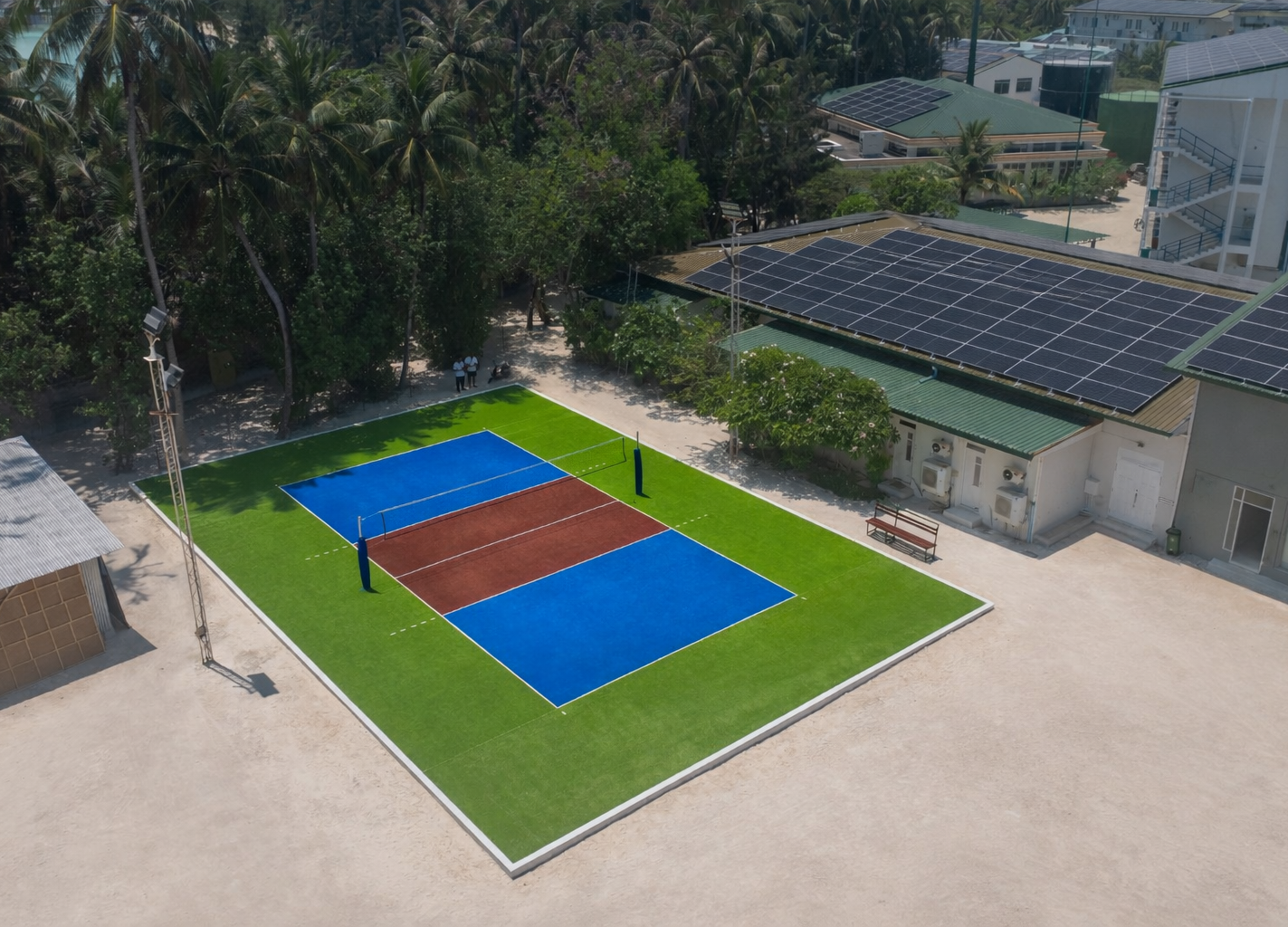
Sun Siyam Olhuveli has unveiled newly upgraded volleyball and futsal grounds for team members, reaffirming its commitment to employee wellbeing while advancing responsible, future-focused operations. The renovated volleyball grounds were officially inaugurated on 14 February, while the upgraded futsal ground opened earlier this year—together creating dedicated spaces for recreation, connection, and healthy competition across the island.
Designed to encourage regular physical activity and camaraderie beyond the workplace, the improved sports facilities represent a thoughtful investment in social infrastructure. They reflect a belief that wellbeing is fundamental to long-term performance, nurturing morale, teamwork, and a strong sense of belonging among team members.
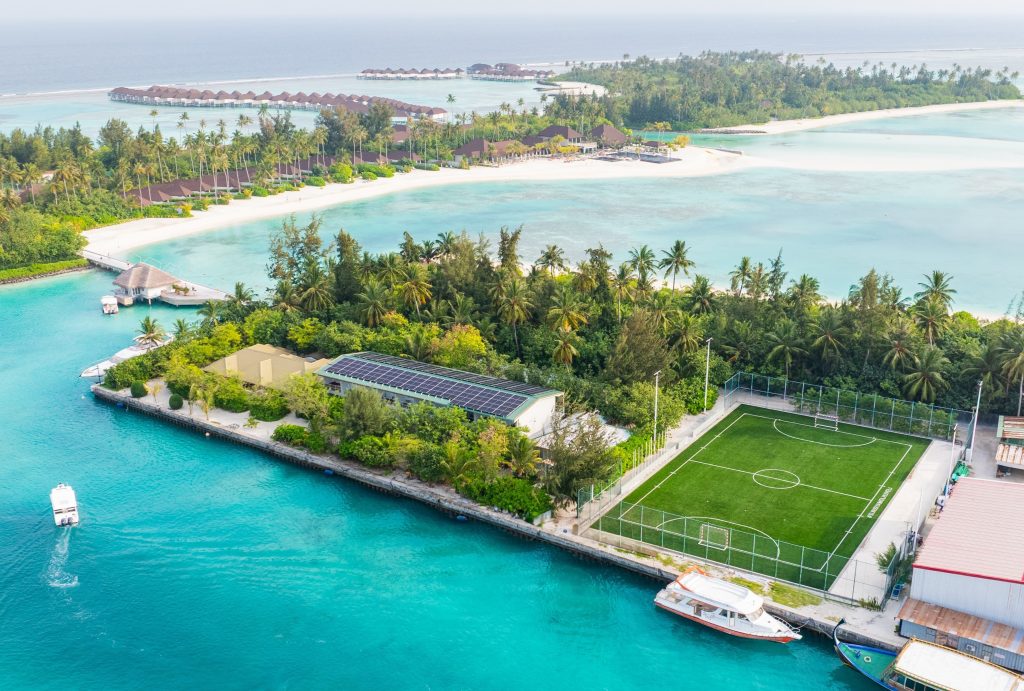
Alongside these developments, the resort has implemented NO BIN DAY every Tuesday, a practical initiative aimed at minimising food waste across operations. By encouraging mindful planning and responsible consumption, the initiative challenges teams to rethink habits around food—transforming sustainability into a shared, everyday discipline.
“Taking care of our people and the environment must go hand in hand. By investing in spaces that support our team’s wellbeing and introducing simple disciplines like NO BIN DAY, we are building a culture where responsibility is lived every day—naturally, collectively, and with purpose,” said Hassan Adil, General Manager of Sun Siyam Olhuveli.
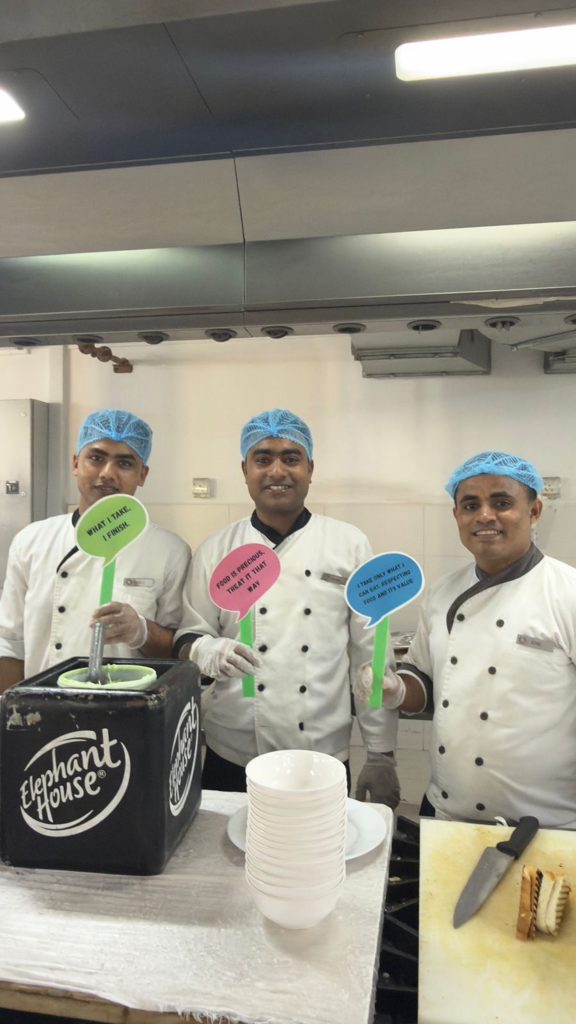
Both initiatives form part of Sun Siyam Care, the group’s corporate social responsibility platform, and align with the Social Infrastructure and Responsible Consumption and Production pillars under the GDS framework. Together, they reflect a people-first approach to sustainability—where everyday actions create lasting impact for teams, operations, and the wider community.
Sun Siyam Care is committed to creating a positive impact for people, communities, and the environment through responsible operations, social investment, and long-term sustainability actions across its destinations in the Maldives and Sri Lanka.
Guests are encouraged to learn more about these initiatives by visiting the Sun Siyam Care website at sunsiyam.com/sun-siyam-care.
Action
Sheraton Maldives Full Moon celebrates sixth anniversary of Reefscapers collaboration
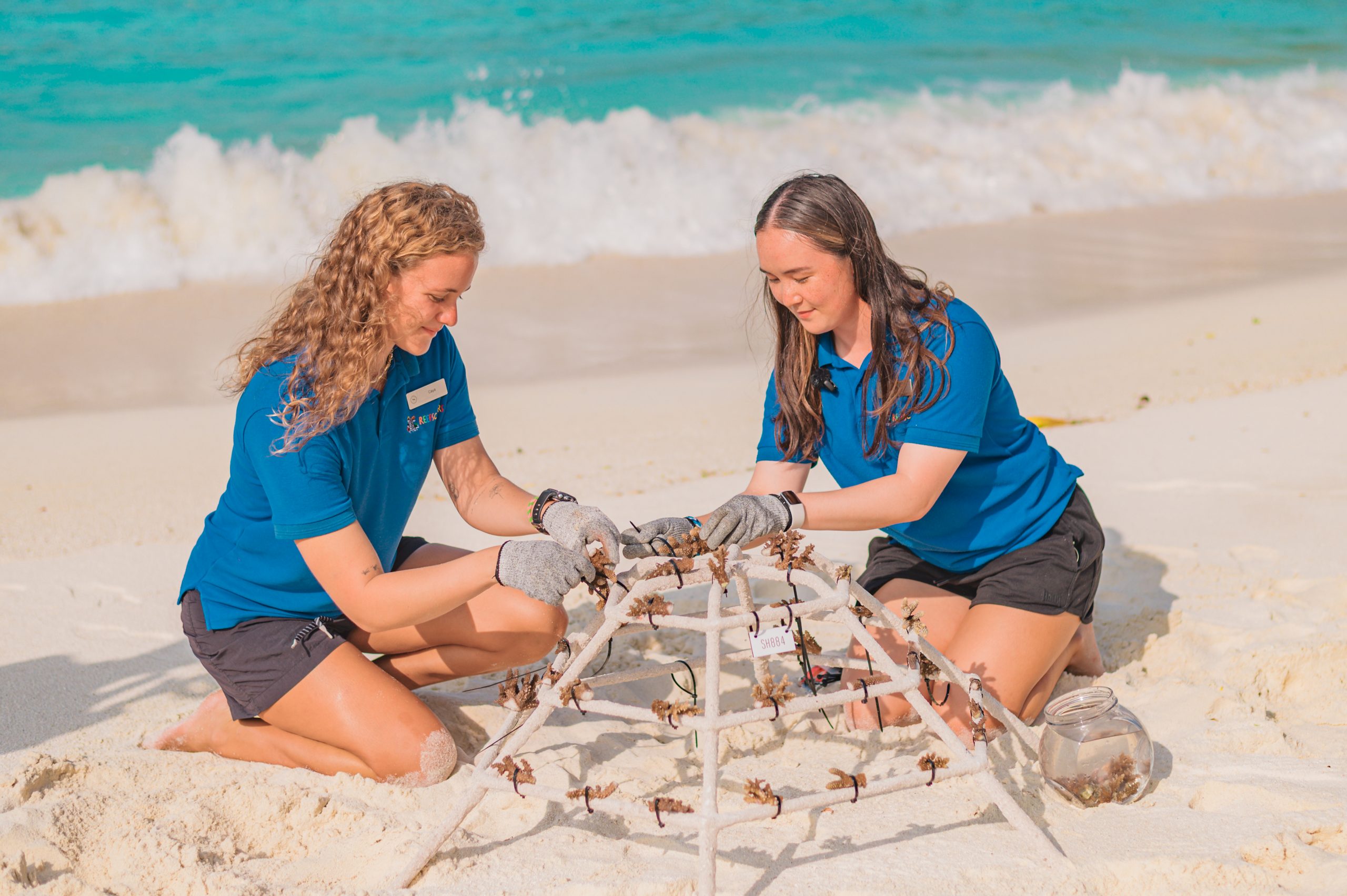
Sheraton Maldives Full Moon Resort & Spa marks the sixth anniversary of its partnership with Reefscapers on February 19, 2026, reaffirming its commitment to protecting and restoring the Maldives’ fragile reef ecosystems. Since launching the partnership in 2020, the resort and Reefscapers have worked together to restore coral habitats, support marine biodiversity, and engage guests in meaningful conservation experiences. The milestone also marks one year since the successful relocation of approximately five tons of coral to the resort’s house reefs — one of the partnership’s most significant conservation initiatives.
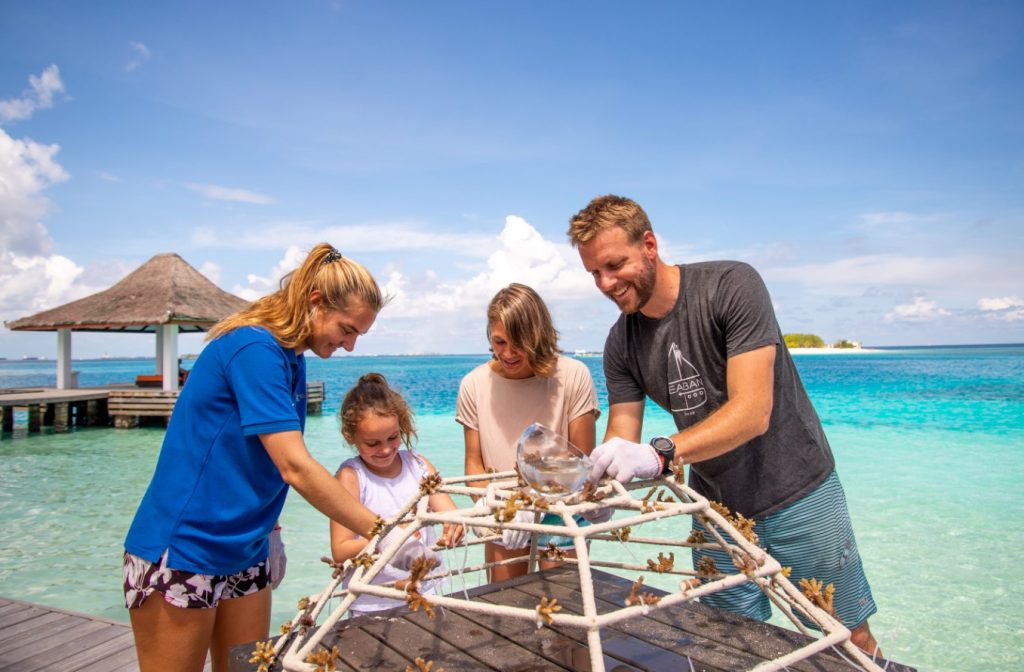
Over the past six years, the partnership has become a defining pillar of the resort’s sustainability journey, blending scientific restoration with purposeful guest engagement. To date, the initiative has resulted in the planting of 898 coral frames, supporting approximately 33,000 coral colonies now growing across the restoration sites. Through coral propagation, reef monitoring, and awareness programmes, these efforts continue to regenerate reef structures while deepening understanding of the essential role coral ecosystems play in sustaining marine life and protecting coastlines. Each thriving coral frame reflects a shared dedication to preserving the natural wonders that make the Maldives one of the world’s most extraordinary marine destinations.
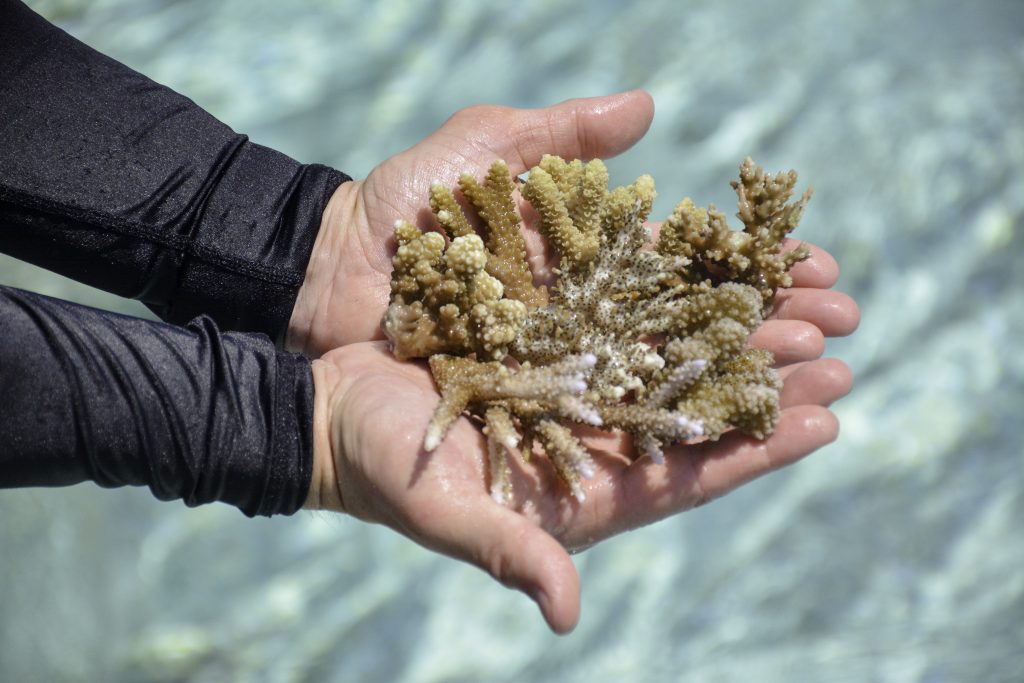
“What makes this partnership special is seeing how small, consistent actions turn into real change underwater. Watching the relocated corals settle, survive, and begin to grow over the past year has been incredibly rewarding for us and the guests who return and witness how they’ve helped restore a living reef,” shares Katelyn, the resort’s Marine Biologist.
A defining achievement of the collaboration has been the coral relocation project, which carefully transferred coral colonies from Ras Malé, also known as the Maldives Eco City, to the resort’s dedicated restoration site, safeguarding them from potential threats linked to land reclamation activities in the Fushi Dhiggaru Lagoon. One year on, these corals continue to flourish beneath the surface, strengthening reef resilience and contributing to the long-term health of the surrounding ecosystem.
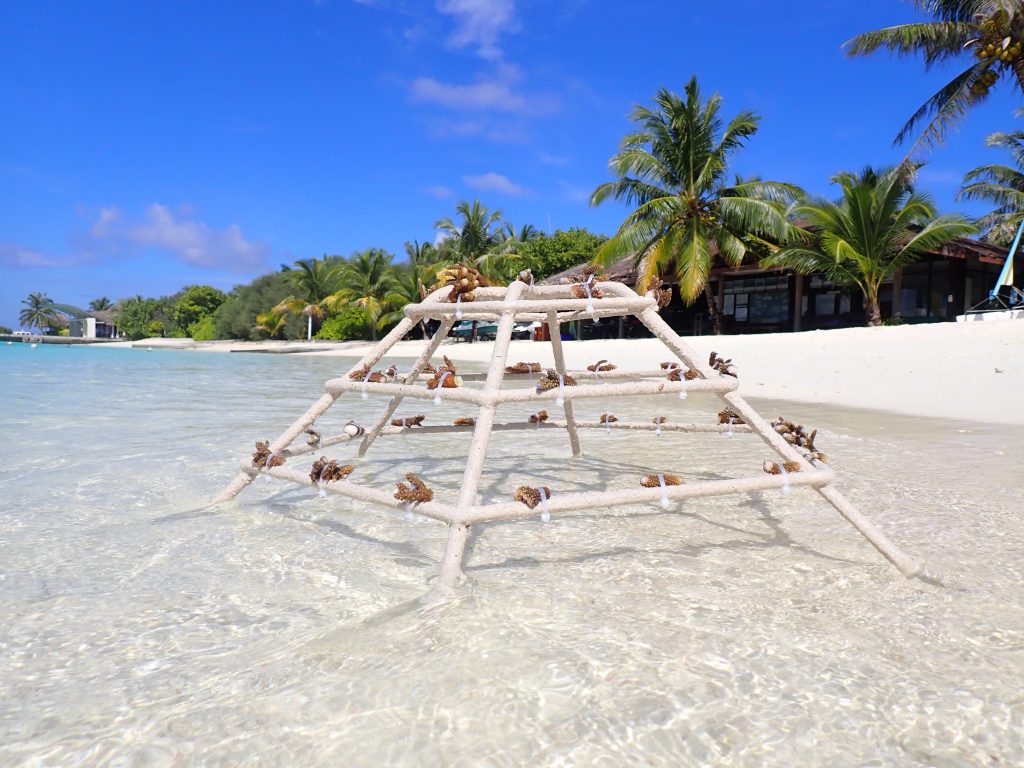
At the heart of the partnership lies the resort’s Adopt a Coral programme, part of the Good Travel with Marriott Bonvoy initiative, which encourages guests to travel with intention through meaningful environmental experiences. Through this hands-on activity, visitors can adopt and name a coral frame while learning directly from marine experts about coral ecology and the importance of protecting marine habitats.
To deepen this connection beyond the stay, guests receive growth updates on their adopted corals every six months, allowing them to follow the progress of their living contribution to the reef. As these corals grow over time, they become enduring symbols of renewal and shared responsibility, transforming a holiday memory into a lasting environmental legacy, and reflecting how travel can positively support local ecosystems and communities.
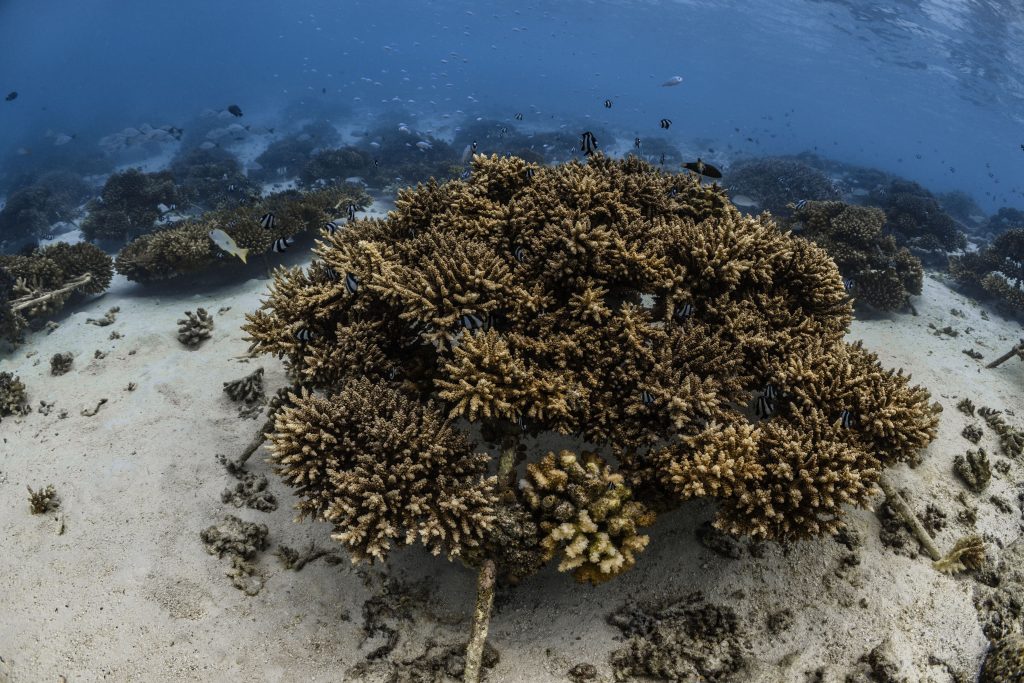
“Our island is surrounded by a remarkable marine environment, and protecting it is a responsibility we take seriously. Our partnership with Reefscapers reflects our belief that hospitality should go hand in hand with stewardship. Seeing the reef restoration progress over the past six years, and the involvement of our guests and associates in that journey, makes this anniversary especially meaningful for all of us,” comments Greg Allan, General Manager of Sheraton Maldives Full Moon Resort & Spa.
Through its continued collaboration with Reefscapers, Sheraton Maldives Full Moon Resort & Spa remains dedicated to advancing marine conservation while creating purposeful guest experiences rooted in sustainability, education, and connection to nature.
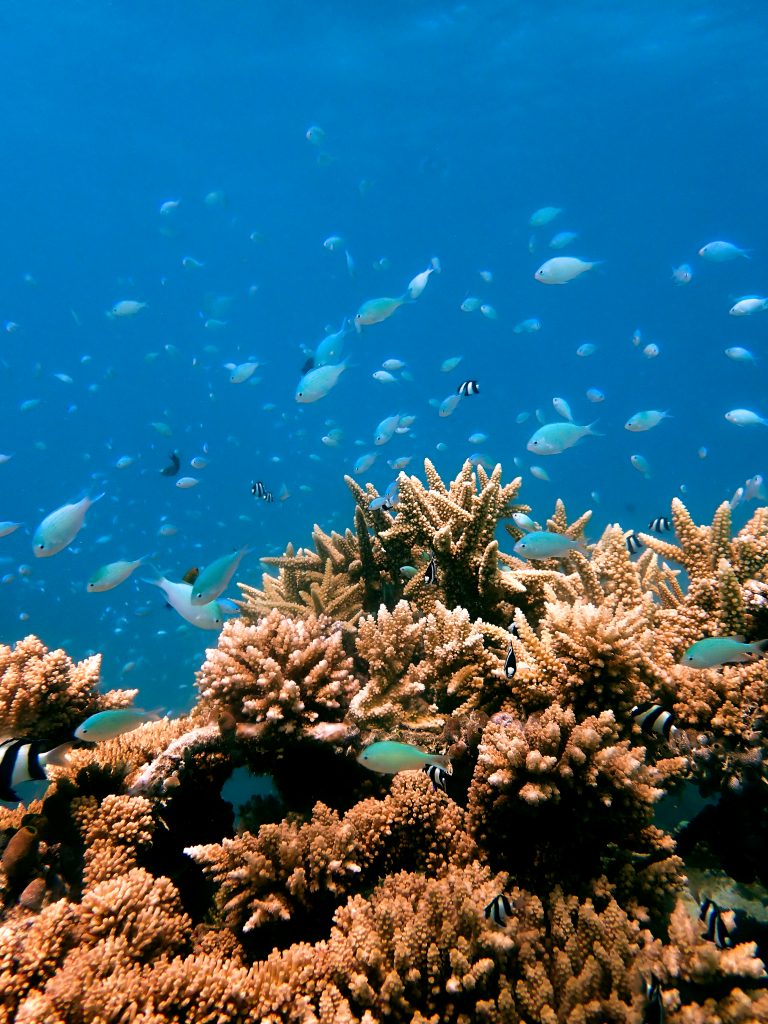
To discover more about the resort’s sustainability initiatives, join the Adopt a Coral programme, or plan a stay that supports reef conservation, visit sheratonmaldives.com or contact the reservations team at Sheraton.Maldives@sheraton.com.
Action
Sun Siyam Vilu Reef unveils expanded marine excursion portfolio

Sun Siyam Vilu Reef, part of the Sun Siyam Privé Collection, has introduced an expanded portfolio of water-based experiences designed to showcase the natural environment and marine life of the surrounding atolls. The enhanced programme combines exploration, activity and moments of calm, offering guests new ways to experience the Maldives through curated ocean journeys and personalised excursions.
Building on established activities such as Jet Car rides, SeaBob adventures and windsurfing, the resort has expanded its watersports offering to include private speedboat journeys and bespoke marine experiences. These additions are tailored for small groups seeking intimate and meaningful encounters with the ocean.
Available daily from the resort’s Watersports Centre, the new private speedboat excursions provide a personalised way to explore the hidden marine sites of Dhaalu Atoll. Designed for one to four guests, each journey offers flexibility and individual attention. Guests may choose from four-hour, five-hour or full-day itineraries, all of which include a freshly prepared barbecue lunch. From coral gardens to secluded sandbanks, the excursions highlight the region’s diverse marine landscapes.
The programme’s centrepiece is the Full Day Adventure Trip, which offers an extended exploration of key marine locations. Highlights include the Coral Garden, known for its biodiversity and reef formations; Turtle Point, where sea turtles are frequently sighted; and Nurse Shark Point, which provides opportunities to observe nurse sharks in their natural environment. The experience concludes with a beachside lunch on a private sandbank, set against uninterrupted views of the Indian Ocean.
For guests seeking a balance between activity and relaxation, the Waves of Adventure and Calmness experience combines a private two-hour snorkelling safari or Jet Ski safari with a full-body massage at the resort. The programme is designed to transition smoothly from ocean exploration to restorative island time, reflecting the relaxed pace that characterises Sun Siyam Vilu Reef.
As part of the Sun Siyam Privé Collection, Sun Siyam Vilu Reef continues to focus on personalised service and experiences rooted in the natural setting of the Maldives. Through its expanded watersports offering, the resort invites guests to engage with the marine environment while enjoying a sense of privacy, discovery and connection to the Maldivian seascape.
-
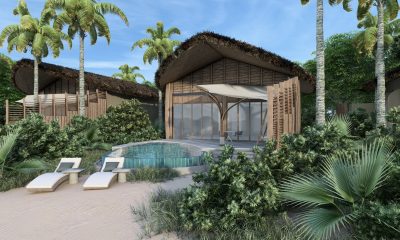
 News1 week ago
News1 week agoPulse Hotels & Resorts unveils Aura Maldives, a mindful luxury sanctuary
-
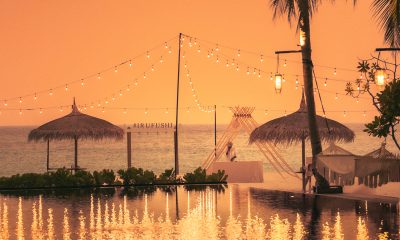
 News1 week ago
News1 week agoSun Siyam Iru Fushi sets new nenchmark with 24 Hour Premium All Inclusive Dine Around
-
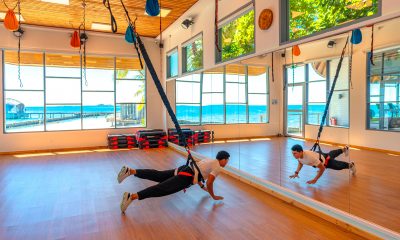
 Fitness1 week ago
Fitness1 week agoOUTRIGGER Maldives Maafushivaru launches expanded wellness programming for 2026
-
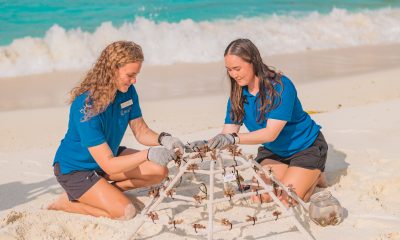
 Action1 week ago
Action1 week agoSheraton Maldives Full Moon celebrates sixth anniversary of Reefscapers collaboration
-
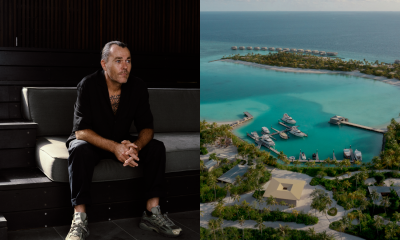
 Cooking1 week ago
Cooking1 week agoPatina Maldives hosts Chef Shannon Bennett for exclusive April residency
-
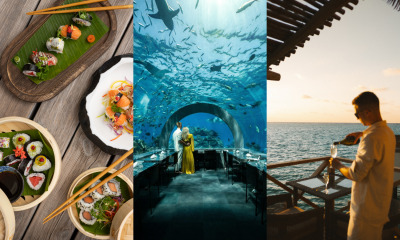
 Featured1 week ago
Featured1 week agoYou & Me Maldives unveils curated Premium All Inclusive programme
-
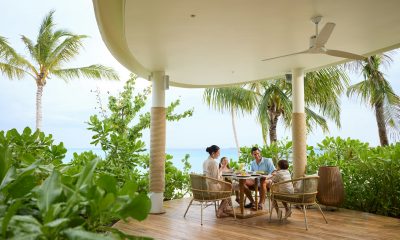
 Awards1 week ago
Awards1 week agoCentara Mirage Lagoon Maldives named Luxury Family Friendly Resort of the Year
-
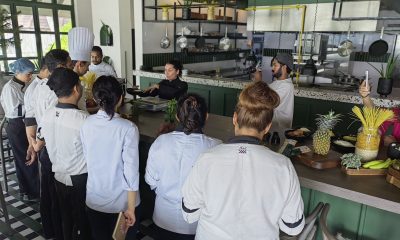
 Cooking1 week ago
Cooking1 week agoSun Siyam Olhuveli hosts Italian Chef Francesca Gambacorta at Milano restaurant




